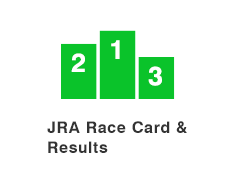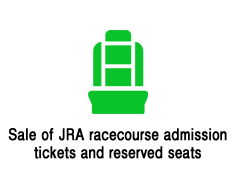February Stakes (G1) - Data Analysis
Spring dirt champion decider
The February Stakes, which is the first G1 race of 2021, determines the spring dirt champion. 2019 winner Inti and 2016 winner Moanin were still contesting 3-win class races in the autumn of the year preceding their victory, but subsequently jumped straight to the top. Let’s now look at the data for the last 10 years to determine which runners are likely to dominate dirt racing in 2021.
Focus on previous race
Looking at performances by runners over the last 10 years in terms of their previous race, we find that the winners had previously contested the Negishi Stakes, the Tokai Stakes, the Champions Cup, or an open-class race. Among runners in this group, those coming straight from the Champions Cup led the pack with a Top 3 ratio of 40.0%. In addition, runners that had previously contested the Kawasaki Kinen or the Tokyo Daishoten, both top-level NAR races, achieved a Top 3 ratio of 25% or above, but produced zero winners. These statistics may prove useful when making predictions. [Table 1]
[Table 1] Performance by previous race (last 10 years)
| Previous race |
Performance
[1st-2nd-3rd-4th or lower] |
Win ratio |
Top 2 ratio |
Top 3 ratio |
| Negishi Stakes |
4-2-2-48 |
7.1% |
10.7% |
14.3% |
| Tokai Stakes |
3-1-1-13 |
16.7% |
22.2% |
27.8% |
| Champions Cup |
2-2-2-9 |
13.3% |
26.7% |
40.0% |
| Open-class race |
1-0-0-9 |
10.0% |
10.0% |
10.0% |
| Kawasaki Kinen |
0-3-1-12 |
0% |
18.8% |
25.0% |
| Tokyo Daishoten |
0-2-3-12 |
0% |
11.8% |
29.4% |
| Musashino Stakes |
0-0-1-1 |
0% |
0% |
50.0% |
| Other race |
0-0-0-24 |
0% |
0% |
0% |
Note: Champions Cup races include races until 2013, when the race was held under the name “Japan Cup Dirt.”
Horses aged 7 and above tend to struggle
Looking at performances by runners over the last 10 years in terms of age, we observe that all winners were aged 4 to 6, that runners aged 7 and runners aged 8 or above both had Top 2 ratios under 10%, and that runners aged 8 or above also had a Top 3 ratio under 10%. In other words, it would seem wise to focus on runners aged 6 or below, which have the edge in terms of success ratios and number of Top 3 finishers. [Table 2]
[Table 2] Performance by age (last 10 years)
| Age |
Performance
[1st-2nd-3rd-4th or lower] |
Win ratio |
Top 2 ratio |
Top 3 ratio |
| 4 |
3-1-1-22 |
11.1% |
14.8% |
18.5% |
| 5 |
4-3-4-23 |
11.8% |
20.6% |
32.4% |
| 6 |
3-2-3-30 |
7.9% |
13.2% |
21.1% |
| 7 |
0-3-1-32 |
0% |
8.3% |
11.1% |
| 8 or above |
0-1-1-21 |
0% |
4.3% |
8.7% |
Race favorites perform well
Looking at performances by runners over the last 10 years in terms of favoritism, we note that race favorites have achieved an excellent Top 3 ratio of 80.0%. Furthermore, these runners have consistently entered the Top 3 in the last seven consecutive years. In contrast, only five runners backed as 6th favorite or lower have entered the Top 3 in the last seven years, two of which were backed as 16th favorite in a 16-horse field. [Table 3]
[Table 3] Performance by favoritism (last 10 years)
| Favoritism |
Performance
[1st-2nd-3rd-4th or lower] |
Win ratio |
Top 2 ratio |
Top 3 ratio |
| 1st favorite |
4-2-2-2 |
40.0% |
60.0% |
80.0% |
| 2nd favorite |
2-2-1-5 |
20.0% |
40.0% |
50.0% |
| 3rd favorite |
1-1-2-6 |
10.0% |
20.0% |
40.0% |
| 4th favorite |
1-1-1-7 |
10.0% |
20.0% |
30.0% |
| 5th favorite |
0-2-0-8 |
0% |
20.0% |
20.0% |
| 6th-9th favorite |
1-1-4-34 |
2.5% |
5.0% |
15.0% |
| 10th favorite or lower |
1-1-0-66 |
1.5% |
2.9% |
2.9% |
Runners starting in outer brackets have a slight advantage
Looking at performances by runners over the last 10 years in terms of horse number, we find that runners starting in the middle to outer brackets delivered the strongest performance. The aforementioned two Top 3 finishers that were backed as 16th favorite also both started in the outer brackets: 2014 winner Copano Rickey (number 13) and 2020 runner-up K T Brave (number 15). Other examples of strong performances by runners starting in the outer brackets include 2012 winner Testa Matta (number 16, 7th favorite). This suggests it may be interesting to slightly raise our expectations of runners starting in the outer brackets. [Table 4]
[Table 4] Performance by horse number (last 10 years)
| Horse number |
Performance
[1st-2nd-3rd-4th or lower] |
Win ratio |
Top 2 ratio |
Top 3 ratio |
| 1-4 |
3-2-2-33 |
7.5% |
12.5% |
17.5% |
| 5-8 |
1-2-2-35 |
2.5% |
7.5% |
12.5% |
| 9-12 |
3-1-6-30 |
7.5% |
10.0% |
25.0% |
| 13-16 |
3-5-0-30 |
7.9% |
21.1% |
21.1% |
Seek out the winner!
Watch timing of, and finish in, previous race
Looking at performances by the last eight winners in terms of their first race of the year, we find that six had contested either the Tokai Stakes or the Negishi Stakes as their first race of the year and triumphed in that race. The remaining two winners contested the February Stakes as their first race of the year, and had both been beaten to 9th or lower in their last race of the previous year. When narrowing down our search for potential winners, we should keep an eye on runners that have previously won the Tokai Stakes or the Negishi Stakes, or whose last race took place in the previous year. [Table 5]
[Table 5] Winners’ finish in first race of the year (last eight years)
| Year |
Winner |
Finish in first race of the year |
| 2013 |
Grape Brandy |
Tokai Stakes, 1st |
| 2014 |
Copano Rickey |
No applicable race |
| 2015 |
Copano Rickey |
Tokai Stakes, 1st |
| 2016 |
Moanin |
Negishi Stakes, 1st |
| 2017 |
Gold Dream |
No applicable race |
| 2018 |
Nonkono Yume |
Negishi Stakes, 1st |
| 2019 |
Inti |
Tokai Stakes, 1st |
| 2020 |
Mozu Ascot |
Negishi Stakes, 1st |
(Michio Kawano)
|

- Preview
- Barrier draw
- Past performances of runners

- News
- Race result
- Video
(English racecall for races after 2006)
- 2025

- 2024

- 2023

- 2022

- 2021

- 2020

- 2019

- 2018

- 2017

- 2016

- 2015

- 2014

- 2013

- Photo Gallery
2025 Winner: Costa Nova
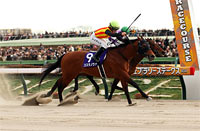
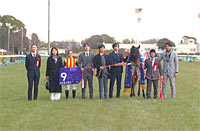
2024 Winner: Peptide Nile
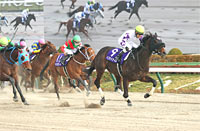
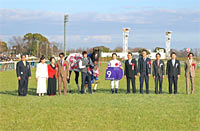
|







